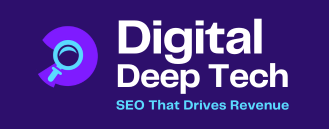How Search Engines Work: Crawling, Indexing and Ranking
When someone searches for a query on a search engine like Google, it shows results instantly. Before that, a lot of things happen behind the SERP. In this blog, we discuss the process by which the search engine displays the results.

Deepak Sharma
SEO Specialist
July 21, 2025 | 6 min. read

Table of the content
How Search Engine shows results?
In today’s time, 8.5 billion searches are done on Google every day. Answering so many searches correctly is very complicated. To make it easier, the search engine divides its process into three parts: crawling, indexing and ranking. It becomes important to understand these terms from the SEO point of view. Let us understand these terms in detail in this blog.
The Problem with SEO Terminology
SEO can be too overwhelming, especially for novices. When I first began, I felt bombarded with a whole lot of jargons and complex terms. You may feel the same way when you start to hear phrases like keywords, SERPs, CTRs, and much more. It is this confusion that makes the implementation of effective SEO strategies difficult.
Why Confusion Matters in SEO
Poor SEO Strategies
This can bring about poor strategies. Here is why it matters in light of SEO:
- Strategies applied: Without knowledge of keywords, you will end up with contents that wouldn’t necessarily be of interest to your audiences. You would end up targeting wrong crowds and wasting all efforts on contents no one searches for.
- Spilled Efforts: Don’t know what SERPs are so you cannot optimize those contents well. You’re going to be frustrated by the hour question of the day, “Why isn’t anyone visiting my site?”
- Missed Opportunities: If he does not know what he needs to do to improve his CTR, then he would have missed a couple of opportunities in attracting visitors. Low CTR directly points out that the titles and descriptions are not all that interesting hence a miss click.
Let’s take it into the real world. I have a friend who launched an online clothing site. She designed an amazing website and came up with tons of content. She never did the keyword research, using purely vague terms to describe the products. And guess what? The site gets very few visitors, and the business doesn’t take off.
And it is precisely here that the trap has been set: misunderstanding may bring worse disasters in the field of SEO terminology.
Key Concepts and Terms
Navigating the digital horizon requires that one is au courant with the basics of key SEO terminology. Some rudimentary concepts and terms you should have a fair understanding of are:

1. Keywords
Keywords constitute words or phrases to which users seek answers at search engines. Keywords are what form the foundation of SEO.
- Short-tail keywords: Short-tail keywords are known as the broad search terms. For example, one or two words make a short-tail keyword. They often have a high search volume but bring equally the high competition. For example, “shoes” is a short-tail keyword.
- Long-tail keywords: These are more specific and longer phrases. They normally have lower search volume but a relatively few competing terms. As such, they will rank easier. Example: “best running shoes for women.” Targeting long-tail keywords might make you more likely to capture more relevant traffic.
2. SERPs (Search Engine Results Pages)
SERPs stands for search engine results pages. These are the pages a search engine generates in answer to a question or request. SERPs is really important to become visible. Websites will rank higher in SERPs; the hits you get because users click your link.
Knowledge about the content of SERPs is also important:
- Organic results: These are listings that do not pay for appearance but appear based on relevance to the search query.
- Paid results : These are the listings that appear on the top or at the bottom of the SERP because of paid advertising-PPC.
- Featured snippets: These are the selected search results featured at the top of the SERP within a box, providing users with answers to their questions.
3. CTR (Click-Through Rate)
CTR is the short form of click-through rate: the proportion of people who have clicked your link after viewing it in SERPs. It is the absolute metric about whether your title and description are effective or not.
Low CTR might indicate:
- Poor titles:If your title fails to arrest attention, users wouldn’t click.
- Poor choice of meta descriptions: If the intention is not matched between the description and that which the user has in mind, you will find that they skip over your link.
4. Backlinks
Backlinks: Links into your website coming from other sites. They greatly affect the authority and ranking of your site.
Quality over quantity: a few strong backlinks are way better than a lot of weak ones. Good quality backlinks send the message to search engines that your content is trustable and relevant.
Let's Discuss Your Project
Get a free one-week consultation and share your vision for digital marketing with us.
5. On-Page SEO
- Content optimization: ensure your content is relevant, engaging, and rich with the right keywords.
- Name Titles and meta descriptions: The art of writing compelling title tags and descriptions for clicks.
- URL structure: Use Search Engine Friendly URLs which contain the appropriate keywords.
6. Off-page SEO
Off-page SEO refers to everything happening outside your website to improve the ranks. Often it is categorized as:
- Link building: Getting high-quality links from other websites.
- Social media marketing: Share your content with users so that they can increase traffic and interaction.
7. Technical SEO

Technical SEO runs behind the curtains of your website. Some of these are:-
- Site speed: So that any visitor takes less time to access your site
- Mobile friendliness: Designed for mobile users
- Indexing: How effective search engines can crawl and index your site
8. Local SEO
This means optimizing your online presence to attract more business from relevant local searches. This is perhaps one of the most important strategies a business can have, which regards being found online.
Key Strategies
- Google My Business: Claim and optimize your Google My Business listing. This is a platform, which helps any business manage its presence across Google-not just on Google Maps but also on Google Search.
- Local Keywords: Utilize geographically targeted keywords within your content.
- Customer Reviews: Have customers leave reviews as they increase your visibility.
SEO Misconceptions
Misunderstanding of these terms can create huge barriers to your SEO Strategies.
- Luring Tactics: If you are not aware of keyword research, then you are likely to waste your time creating contents that do not get connected with your target audience.
- Your Efforts to Waster: Unless you understand SERPs profoundly, you may find yourself confused when your website does not rank the way you think and asks, “Why isn’t anybody visiting my website?”
- Lost Opportunities: How would you know unless you try to improve your CTR? You might be missing opportunities for attracting heavier volumes of clicks, and a simple title or description change can easily help click volumes shoot up.
Real Life Examples of Confusion Impact
Let’s return to that story of my friend deciding to open up an online clothes shop. It’s a pretty decent website; she spent some time writing content, but somehow failed to develop the proper keywords and opted for rather generic terms.
She had really few visitors to her site. So she sought my help. We did a little joint keyword research in long-tail keywords matching her niche. She revamped her contents and began optimizing new data of titles and descriptions.
It didn’t take more than weeks before we did the research when she started ranking good on SERPs and therefore got more traffic. She finally started enjoying fruits of labor.
This example underlines the importance of learning terms of SEO. It’s not knowing the meanings but applying them correctly in your strategy.
Understanding and Implementation of SEO Terms
Once you learn and become perfect with these terms, you are going to take proper decisions and then craft effective SEO strategies.
Practical SEO Strategies
Here are the steps that you can implement ideas discussed:
1. Keyword Research
Keyword research is the foundation of good SEO. Here is how you find the best keywords:
- Use Tools: Make use of Google Keyword Planner, SEMrush, and Ubersuggest for the keywords that are relevant by ranking based on search volume and competition.
- Analyze Competitors: This can enable you to understand how your competitors rank for certain keywords. It helps you know which are the best keywords for your niche.
- Focus on Long-Tail Keywords: In most cases, long-tail keywords boast lesser competition. You are assured that the eventual traffic it brings is more targeted. For instance, instead of focusing on “shoes,” go for “best running shoes for flat feet.”.
2. On-Page SEO
Here are some of the best practices with regard to increasing the propensity of your content to feature more frequently in SERPs:
- Write Catchy Titles: This is what a visitor is required to read on first opening your content. It must be catchy and at the same time relevant to the search query.
- Write Compelling Meta Descriptions: Your meta description must summarize your content and convince the visitor to click through. The language used will quite naturally be action-oriented and thus nudge them towards a click.
- Schema Markup: You can use schema markup to enable search engines to better understand your content. You can add schema markup to enrich listings in SERPs and help transform them into rich snippets.
3. Increasing a Higher CTR
Increasing your CTR is the most important thing to attract more visitors. Here is how you can do it:
- Review Your Content: Look through the existing content and determine how you can improve it. Is the title and description you’re using suitable to the intent of your users?
- Experiment with Different Titles: One thing you could do, for example, is experiment with variations of titles by A/B testing them to see which out of the two will perform better. Sometimes, such small changes bring good amounts of variation in CTR.
- Use Numbers and Questions: Headlines that carry numbers (for example, “5 Tips to…, Top 10 strategies…”) or question can be interesting. They get people curious and evoke clicks.
4. Create Quality Backlinks
Backlinks will make your site authority rich. Here’s how you can make them:
- Reach out for Guest Posting: Propose to interested blogs and websites, offering them the chance to have you guest post. Ensure the content you have is informative and can work for them.
- Make Shareable Content: Develop good content that informs and other people will want to share. Infographics, guides, and case studies seem to attract links.
- Reach out and Network with Influencers: Connect with influencers in your niche. Working together on a piece of content or a project can be a good way to earn backlinks.
5. On-Page SEO Focus
On-page SEO is very important to the optimization of content. Here are the key elements to look at:
- Quality of Content: An aesthetic theme that might interest your target market should be developed. Keywords may be used, but only organically in your writing.
- Header Tags: Header tags include H1, H2 and H3. Using header tags structures the content in a manner that users as well as search engines may understand it more swiftly.
- Image Optimization: Use proper file name and alt text on your images. Descriptive file names and alt text allow the search engines to understand what your image says and also makes your pictures accessible for people who cannot look at your images.
6. Invest in Off-Page SEO
Off-page SEO is all about how you create your online reputation. Here are a few strategies:
- Social Media Marketing: Share your content on all the social media platforms you utilize. Engage with your audience and ask them to do the same.
- Collaborate with Others: Partner other businesses or influencers in a niche. This will lead to cross-promotion and visibility in other sites as well.
7. Master Technical SEO
Technical SEO will make sure that your site runs smoothly. Keep an eye on these areas:
- Site Speed: use Google PageSpeed Insights to determine the speed of your site. Optimise images use browser caching and minify code to decrease your load time.
- Mobile-Friendliness: just make sure that the responsiveness of your site generates a slick user experience on mobile devices. There are a number of tools from Google that you can use to monitor your site for example there’s the Google Mobile-Friendly Test tool.
- Indexing: Use Google Search Console or some similar to check if your site has been indexed or not. Make sure that your website is crawled properly by search engines.
8. Local SEO
If your site is targeted towards local audiences, then you must embrace the following local SEO:
Claim and fill in Google My Business listing and all details along with photos and reviews.
Use location-based keywords in your content. For example, “Sydney plumbing services.”
Tell your happy customers to go and leave a positive review on platforms like Google and Yelp. This works for you in increasing your credibility and local visibility.
Conclusion
Congratulations! You’ve finally begun to learn SEO jargon. All this knowledge about keywords, SERPs, CTRs, and more helps you design strategy after strategy to push more traffic to your website and widen your online reach.
This is the Day 4 of 90 Days of FREE SEO Couse “Understanding SEO Terminology: Keywords, SERPs, CTRs, and More” Note that, SEO is a process, not a destination. The more you learn and put these concepts into practice, the more ready you will be as the digital landscape continues to shift.
Questions or need further help? Just let us know! We’ll catch up again on our next lesson, where we’ll dive deeper into the world of keyword research and uncover how to optimize your content for maximum effect.

About the Author
Deepak Sharma is the founder of Digital Deep Tech and a renowned SEO and digital marketing expert with over a decade of experience. Passionate about helping businesses enhance their online presence, Deepak specializes in creating SEO strategies that drive traffic and generate leads.




